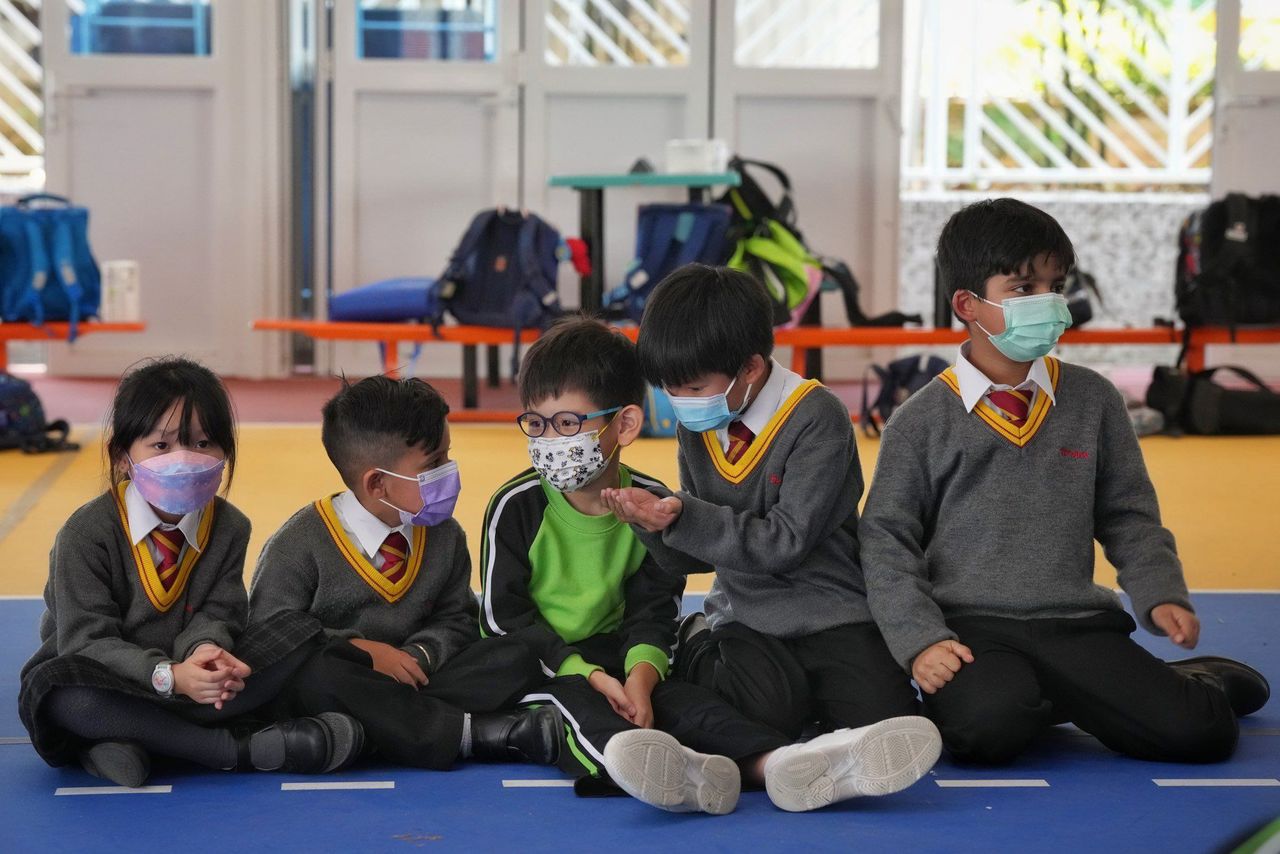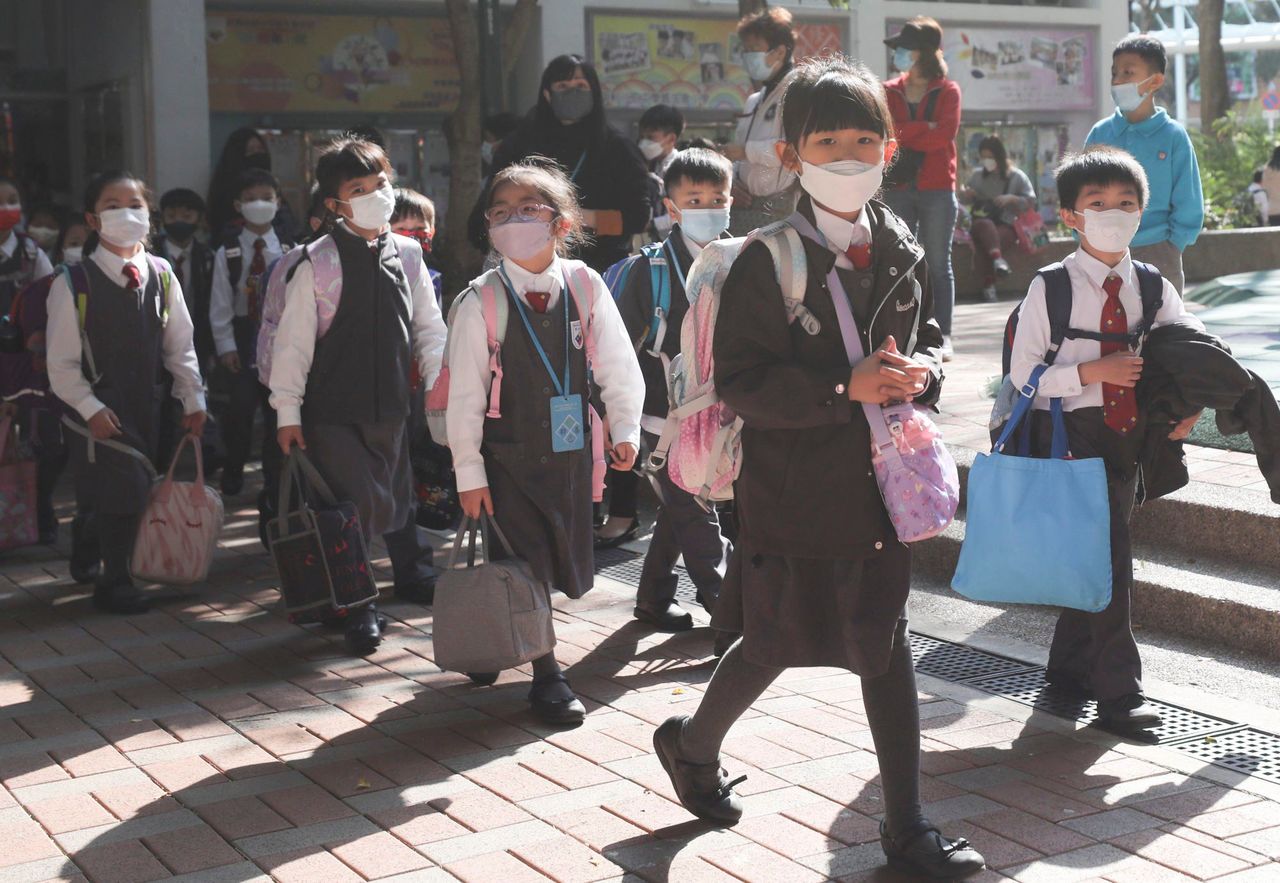Hong Kong News

Hong Kong pupils will need time to adjust to life without masks, principals warn
Hong Kong parents may still want their children to wear masks even after the mandate is lifted, school heads have said, predicting some families will remain anxious about infection risks while younger pupils may need time to adapt to seeing people’s faces.
The principals were responding to the government’s decision to end the Covid-19 mask mandate on Wednesday after nearly three years.
A spokeswoman for the Education Bureau said the government’s policy change would apply to all schools and the bureau would soon issue the updated version of the health guidelines.
She added that pupils should still be required to complete the daily rapid antigen tests until March 15, when the arrangement would be reviewed.
 Many pupils will be able to see the faces of their classmates for the first time.
Many pupils will be able to see the faces of their classmates for the first time.
Vu Im-fan, head of the Subsidised Primary Schools Council and a principal, said the sector welcomed the end to the mask mandate but added parents had the right to let their children wear masks if they found it necessary.
Vu expected a few pupils would still wear the face covering as they might need time to adapt to the new environment. She was looking forward to seeing all the smiling faces of pupils, she said, particularly those in lower grades.
“All students studying in lower forms have not seen my face since they started school. I very much look forward to seeing their faces,” the principal said.
Cheung Yung-pong, honorary chairman of the Aided Primary School Heads Association, told a radio programme he expected most schools would allow parents to decide whether to let their children wear masks.
He added that some parents would still be worried, and some children were not vaccinated and prone to illness.
He said teachers could choose whether they wanted to wear masks or not.
Cheung also said he hoped the bureau could drop the daily rapid antigen tests for primary and kindergarten pupils.
He added it would be challenging for younger children who had never seen their classmates’ faces.
“Especially for the younger kids, they know little about facial expression. And for some who need training by the speech therapists, they can hardly see [therapists’] mouth movement since they all put masks on. I hope they can improve their pronunciation and communication with others after they need not wear masks,” he said.
He said he expected these students would need time to adapt to life without masks.
The school head said he was so happy to see the students’ faces after nearly three years of mask-wearing requirements.
Government pandemic adviser Professor Lau Yu-lung told a radio programme that a greater focus should be placed on helping children adjust to the change, as some youngsters had grown up wearing masks.
“It takes time to explain to them that it is actually normal to go maskless,” he said. “They might be anxious and we should let them decide whether to wear it or not instead of forcing them.”
A survey of more than 1,000 secondary school students by Hong Kong Lutheran Social Services in June found that 63 per cent of the respondents were worried about having to remove their masks to meet people in the future.
 Primary school pupils in Tin Shui Wai leave school wearing masks for the
last time. Hong Kong will scrap its mask mandate on Wednesday.
Primary school pupils in Tin Shui Wai leave school wearing masks for the
last time. Hong Kong will scrap its mask mandate on Wednesday.
But a social worker said some students might be more anxious about getting infected than interacting with others without masks.
Wendy Huang Wen-jie, who works with children at the Society for Community Organisation, said pupils and their parents were happy and relieved to remove masks, but many intended to keep theirs on for some time for fear of infection.
“Some parents are concerned about infection risks posed to their children without masks, and intend to let their children continue wearing masks for some time while observing the situation,” she said.
Huang said she was not very concerned about students’ adaptation to the new arrangement as she noted that the resumption of full-day, in-person classes and dining at school earlier had provided a transitional period for pupils.
But she urged schools and teachers to allow students to choose, respect their decisions, and protect them from peer pressure.











